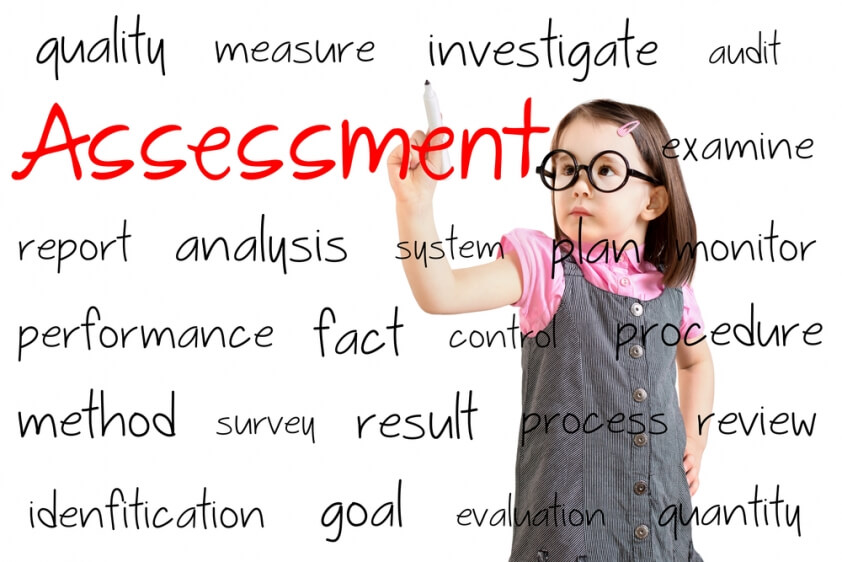What are IQ/Cognitive/ Psychometric Assessments?

What You Need to Know about IQ and Cognitive Assessments
At ACPC Psychology, we frequently administer a range of different assessments and we may recommend them to parents according to their child’s needs and circumstances. One of the more common assessments that we administer is the cognitive assessment, a comprehensive measure of a child’s ‘IQ’ (intelligence quotient) or intellectual functioning.
Depending on your child’s age, we may use the Weschler Preschool and Primary Scale of Intelligence – 4th Edition (WPPSI-IV) for toddlers and pre-schoolers, and the Wechsler Intelligence Scale for Children – 5th Edition (WISC-V) for children of primary school and high school age.
Q: What does IQ or intellectual functioning actually mean?
A person’s IQ is an indicator of their cognitive skills, their ability to learn and understand information, apply logic and reason, and solve problems. Thus, it is more than just general knowledge or how ‘smart’ someone is. In fact, there are many different types of intelligence. One example is crystallised intelligence, which is acquired knowledge from past learning (e.g. facts) which continues developing throughout one’s lifetime (Cattell, 1987). You may also have heard of emotional intelligence, or one’s ability to identify, monitor and respond to the emotions in ourselves and others (Salovey & Mayer, 1990).
It is important to point out that the WPPSI and the WISC do not capture all facets of human intelligence. There is no ‘perfect’ test that comprehensively identifies all the cognitive abilities that differentiate us from one another. However, the WPPSI and WISC can be a useful measure for accurately evaluating the cognitive abilities that predict achievement and performance.
Q: So what do the WPPSI and WISC measure?
These assessments evaluate five different indices of cognitive functioning:
- Verbal Comprehension: A measure of a child’s word knowledge, and their ability to retrieve and communicate them with others. These verbal reasoning skills can be important for participating in class discussions and expressing one’s ideas to others.
- Visual Spatial: A measure of a child’s ability to interpret visual stimuli and understand spatial relationships. We utilise visual-spatial skills on a daily basis, ranging from tying our shoelaces to reading maps to solving maths problems.
- Fluid Reasoning: Understanding relationships between visual objects and using these skills to solve problems. This can be interpreted as a measure of abstract thinking.
- Working Memory: A person’s ability to register, manipulate and recall visual and auditory information. This skill can be affected by one’s attention and concentration.
- Processing Speed: A measure of one’s ability to read, interpret and make decisions based on visual stimuli. For example, this may affect a child’s ability to complete classwork in a time-efficient manner.
Together, the scores on these indices form the Full Scale IQ (FSIQ), which can be viewed as an overall measure of intelligence. However, there is academic debate as to whether global scores such as FSIQ should be used and interpreted, or whether index scores (e.g. fluid reasoning) offer more useful information (e.g. Freberg et al., 2008)
Q: Can a person’s IQ change over time?
The short answer: it depends. The WPPSI and the WISC are viewed as ‘reliable’ assessments, which means that test scores should be relatively consistent over time if the assessment was repeated across the child’s lifespan (e.g. Watkins & Smith, 2013). However, neither assessment is 100% accurate; scores may be affected by factors such as motivation on the day or the child’s rapport with the examiner, so there is a small possibility of fluctuations in IQ if a child was to be retested.
On a related note, a phenomenon exists where IQ scores from standardised measurements have been increasing over time. This is known as the Flynn Effect, and has been attributed to improved health, nutrition and educational opportunities across generations (Trahan et al., 2014).
Q: How would my child benefit from a cognitive assessment?
- To evaluate their strengths and weaknesses. Every child is different, and an understanding of their cognitive profile could help parents and educators learn how best to support their learning.
- To assess their development in comparison to their peers. The WPPSI and the WISC are standardised, which means you can compare your child’s results with what is developmentally expected for his age.
- To access funding for intervention services. Services such as the National Disability Insurance Scheme (NDIS) or funding for school-based support such as teaching or specialised staff usually require a formal assessment.
In summary, a cognitive or intellectual assessment is helpful and can assist with a child's overall profile. It is important to note however that a cognitive/ IQ assessment on its own is limited and thus it is best that it is administered in combination with the child's other developmental areas using multi assessments and multi informants. Although some psychologists have had some training in administering assessments, the key is to seek a professional who had significant experience in interpretation of the results.
A comprehensive assessment is often recommended at ACPC Psychology and psychologists are expected to have significant experience in administering and interpreting such assessments. For further questions or queries regarding assessments, please do not hesitate to contact our clinic to discuss the assessment process.
Written by: Jacky Au, Registered Psychologist (Clinical Psychology Registrar) at ACPC Psychology
References
Cattell, R. B. (1987). Intelligence: Its structure, growth and action (Vol. 35). Elsevier.
Freberg, M. E., Vandiver, B. J., Watkins, M. W., & Canivez, G. L. (2008). Significant factor score variability and the validity of the WISC-III Full Scale IQ in predicting later academic achievement. Applied Neuropsychology, 15(2), 131-139.
Salovey, P., & Mayer, J. D. (1990). Emotional intelligence. Imagination, cognition and personality, 9(3), 185-211.
Trahan, L. H., Stuebing, K. K., Fletcher, J. M., & Hiscock, M. (2014). The Flynn effect: A meta-analysis. Psychological bulletin, 140(5), 1332.
Watkins, M. W., & Smith, L. G. (2013). Long-term stability of the Wechsler Intelligence Scale for Children—Fourth Edition. Psychological Assessment, 25(2), 477.



